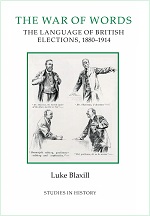Posts com a Tag ‘Boydell & Brewer (E)’
Ports in the Medieval European Atlantic. Shipping/Transport and Labour | Ana María Rivera Medina
Ports in the Medieval European Atlantic…, editado por Ana María Rivera Medina, recoge las contribuciones de dos grupos de investigación dedicados al estudio del mundo marítimo bajomedieval: Castillas y el Mar en la Baja Edad Media, de la Universidad de La Laguna, y La gobernanza de los puertos atlánticos en la Edad Media (GOBPORT), de la Universidad de Cantabria. La obra contiene un prólogo, una introducción general a la problemática, siete capítulos y una conclusión, en donde cada intervención se encuentra a cargo de destacados especialistas. Cabe resaltar que el libro fue publicado por una prestigiosa editorial británica y el hecho de que fuera editado en inglés abre el campo a las discusiones con otros ámbitos académicos, diferentes a los que habitan los investigadores e investigadoras del ámbito español y portugués, pues es conocido por todos el impacto que produce una publicación en dicha lengua al masificar su alcance a lectores de diversos territorios. Leia Mais
Medieval Welsh Genealogy: An Introduction and Textual Study | Ben Guy (R)
This substantial book does two jobs. It undertakes the first full textual study of Welsh genealogical literature in the Middle Ages, and it provides a new critical edition of the most important texts. In the second of these roles it replaces Peter Bartrum’s Early Welsh Genealogical Tracts (1966), the workhorse on which everyone relied till now. In the first role, however, it has no predecessor. Bartrum offered only a modest commentary and apparatus. That cannot be said of Ben Guy’s book. The task of reviewing this imposing volume calls to mind a certain early Welsh poem in which an inferior warrior takes on the hero, like ‘a shrew that scrabbled against a cliffside.’
Readers may want to know what is so important about genealogy, and also why such basic source criticism is still needed in 2021. Genealogical thinking pervaded medieval Welsh views of the past and there was a dedicated literature of genealogy from a quite early date. There is plenty of material, therefore, and the general shortage of historical sources from early medieval Wales means that genealogies play an outsize role in the reconstruction of the country’s political history. As to why the texts were still in such a deplorable state of confusion, that is a consequence of an abundance of material combined with a shortage of investigators. Few historians have the time or inclination for this work. The astonishingly productive Peter Bartrum was an amateur scholar who worked in his professional life for the Meteorological Office. He has had few emulators, though the name of David Thornton deserves honourable mention, and other historians have dealt with individual problems. As a corpus, however, the earliest Welsh genealogical literature has never been reduced to textual order – until now. Leia Mais
The War of Words: The Language of British Elections / Luke Blaxill
Luke Blaxill / Foto: University of Birmingham /

The War of Words has been trailed in a series of journal articles and book chapters over the last decade, so some readers will already be familiar with the techniques involved, and a number of the more striking reinterpretations the book offers. But having everything presented together—and supported by an imposing array of statistical tables (36) and figures (44), a ‘technical glossary’, and 68 pages of methodological and statistical appendices—lends the research a powerful cumulative effect. As this suggests, the volume’s embrace of digital methods goes well beyond the searches for ‘hits’ on particular keywords, and the Google Ngrams, which are already part of the historian’s armoury. What does the book mean to do? Leia Mais
The War Within: new perspectives on the civil war in Mozambique/1976-1992 | Eric Mourier-Genoud, Michel Cahen, Domingos M. Rosário
Uma característica trágica compartilhada pela história nacional de alguns países africanos é a emergência de conflitos militares dentro de suas próprias fronteiras que, via de regra, estão marcados por uma combinação variável de fatores e atores internos e externos – de um lado, a explosão de tensões e clivagens sociais que o regime político implantado após a independência não foi capaz de resolver, e em alguns casos agravou; de outro, a incidência de interesses econômicos e geoestratégicos que condicionaram a participação de outros Estados, empresas multinacionais e órgãos multilaterais. Na década de 1960, essa dinâmica alimentou conflagrações sangrentas no Congo-Léopoldville, nos Camarões e na Nigéria; após a independência dos territórios africanos submetidos à dominação portuguesa, Angola e Moçambique viram seus nomes incluídos nessa malfadada lista. Em Moçambique, diferente de Angola, a hegemonia política e militar do novo regime demorou alguns anos a ser seriamente desafiada. Embora tenha havido uma resistência armada localizada na Zambézia desde 1976, foi a partir do início da década seguinte que uma situação de guerra interna se generalizou, prolongando-se até 1992, quando foi assinado o Acordo Geral de Paz. Leia Mais


